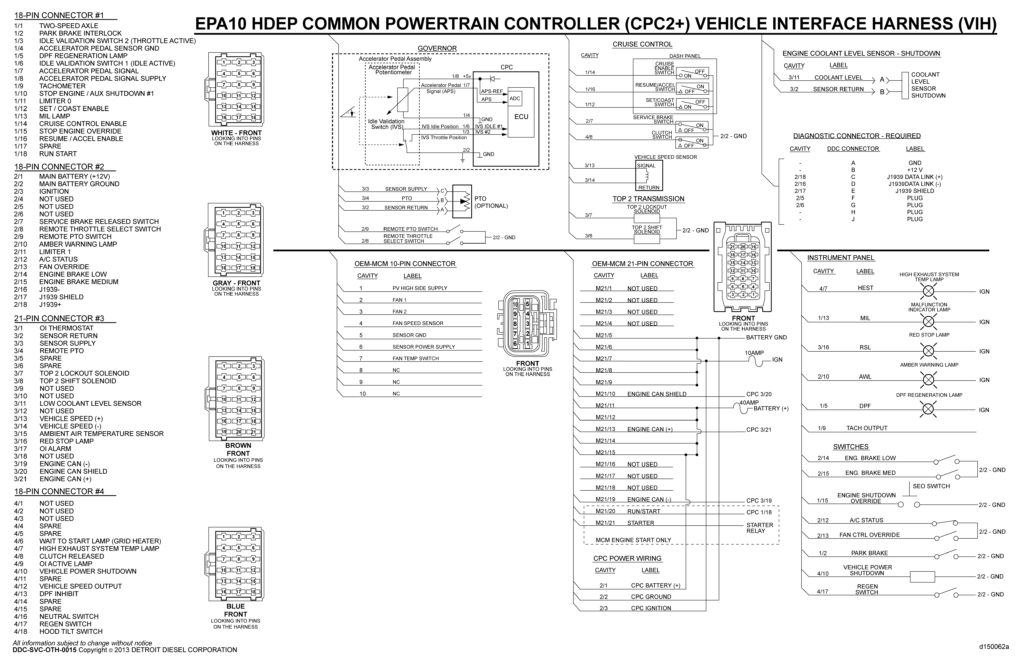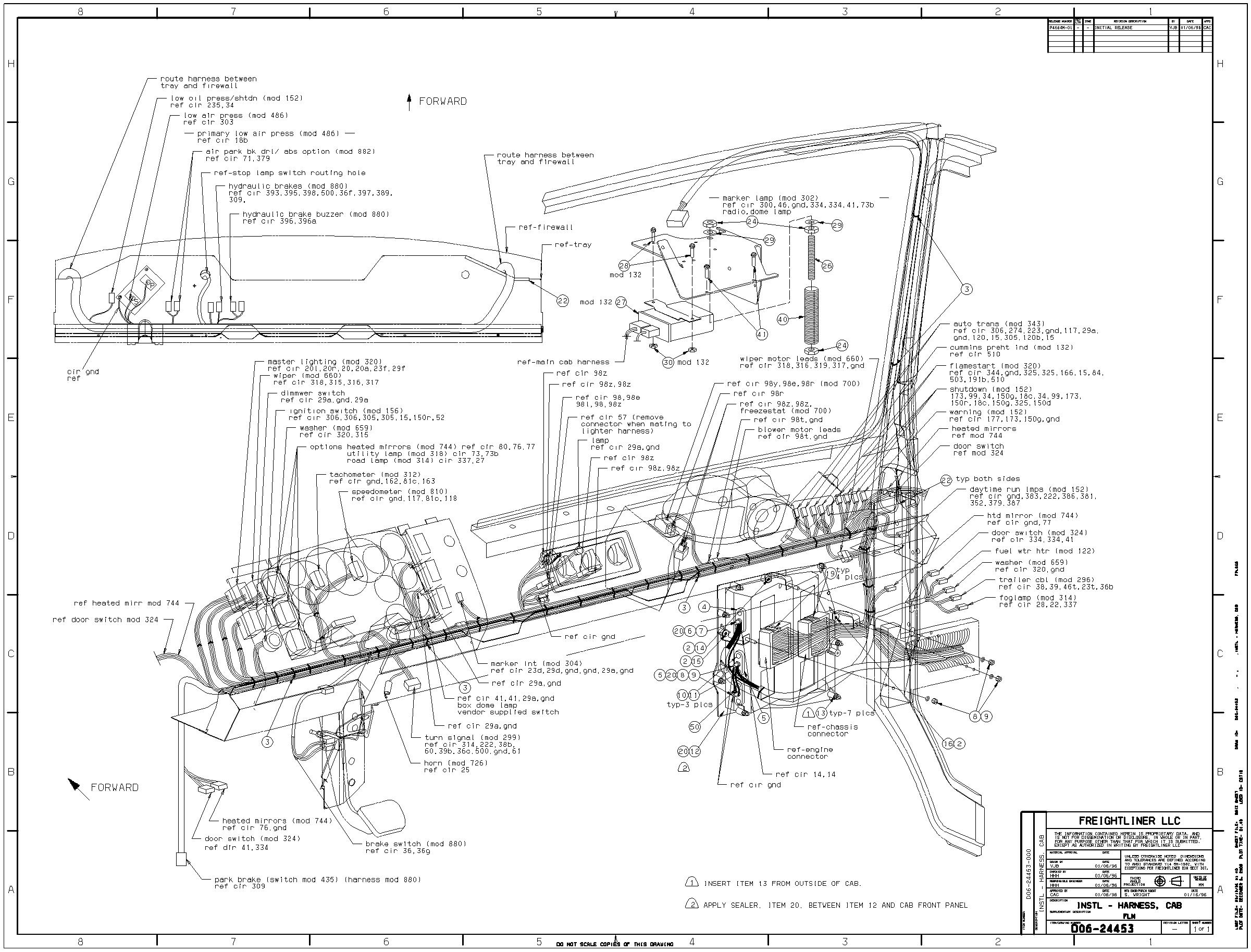When it comes to understanding the intricacies of your Freightliner truck’s electrical system, having access to a comprehensive Freightliner Cpc Wiring Diagram is crucial. These diagrams provide a detailed overview of the wiring connections, components, and electrical systems within your Freightliner truck, helping you diagnose and troubleshoot any potential issues that may arise.
Why are Freightliner Cpc Wiring Diagrams essential?
- Provide a detailed overview of the wiring connections within your Freightliner truck
- Help you understand the layout and organization of the electrical system
- Aid in diagnosing and troubleshooting electrical issues efficiently
- Essential for performing maintenance and repairs on your Freightliner truck
How to read and interpret Freightliner Cpc Wiring Diagrams effectively
Reading and interpreting Freightliner Cpc Wiring Diagrams may seem daunting at first, but with a little guidance, you can navigate through them effectively. Here are some tips:
- Start by familiarizing yourself with the key symbols and abbreviations used in the diagram
- Follow the wiring paths and connections to understand how different components are linked
- Pay attention to color-coding and labeling to identify specific wires and components
- Refer to the legend or key provided in the diagram for additional information
How Freightliner Cpc Wiring Diagrams are used for troubleshooting electrical problems
Freightliner Cpc Wiring Diagrams are invaluable tools when it comes to troubleshooting electrical problems in your truck. Here’s how they can help:
- Identify the source of an electrical issue by tracing the wiring connections
- Pinpoint faulty components or connections that may be causing the problem
- Guide you through the process of testing and inspecting electrical circuits
- Assist in finding solutions and making necessary repairs to resolve the issue
When working with electrical systems and using wiring diagrams, safety should always be a top priority. Here are some safety tips and best practices to keep in mind:
- Always disconnect the battery before working on any electrical components
- Use insulated tools to prevent electrical shocks
- Avoid working on electrical systems in wet or damp conditions
- Double-check your connections and wiring before powering up the system
Freightliner Cpc Wiring Diagram
EPA10 DD15 CPC WIRING DIAGRAM | DD15 Troubleshooting

freightliner truck wiring diagrams – Wiring System

Freightliner Cpc Wiring Diagram

Freightliner Cpc Wiring Diagram

free freightliner wiring diagrams – Diagram Board

Freightliner Cpc Wiring Diagram – moplamusic
